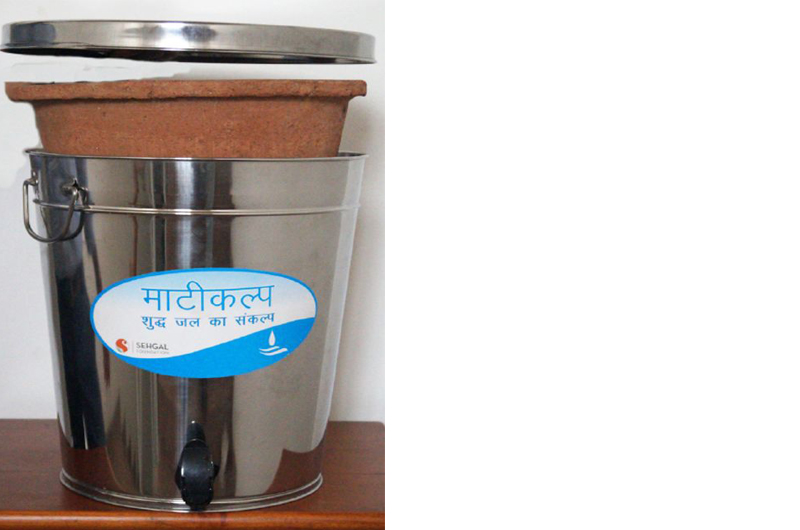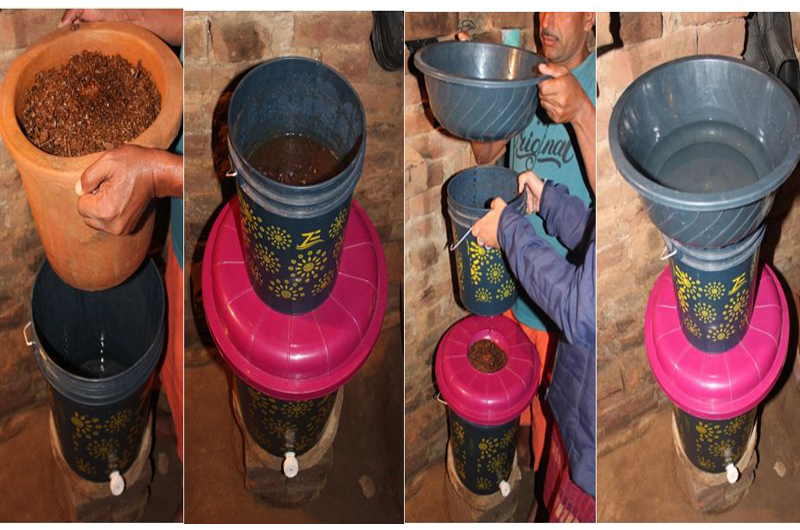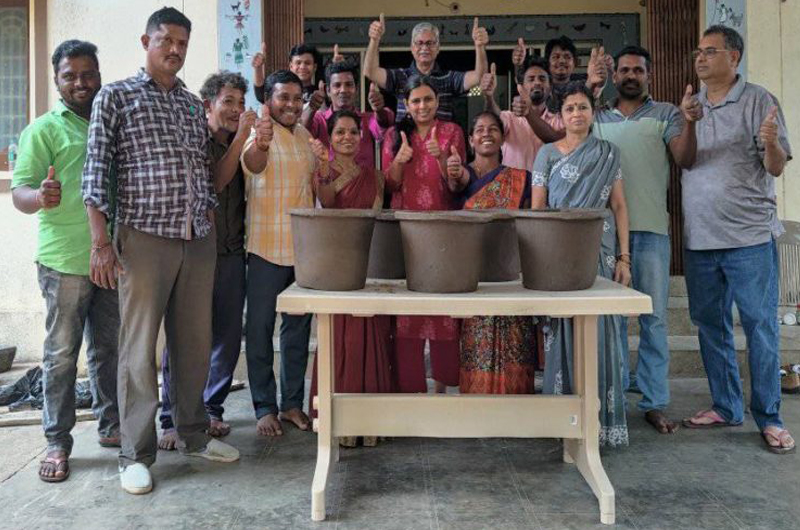S M Sehgal Foundation advocates the adoption of low-cost sustainable point-of-use (household) water treatment technologies. The Foundation team has been instrumental in promoting the MatiKalp ceramic pot filter, a simple, low-cost, sustainable solution, capable of removing iron, manganese and microbial contamination to prevent waterborne disease. Let us know how the water filter is helping address water quality challenges as well as economic livelihoods in rural India from Lalit Mohan Sharma, Yashi Gautam and Aparajeeta
According to the latest report of UNICEF and the World Health Organization (2022), 2.2 billion people worldwide lack access to safe drinking water. Previous findings indicate that improving access to safe drinking water prevents 4 per cent of the global disease burden. Bihar, West Bengal, Eastern Uttar Pradesh, and parts of India’s northeastern states are severely affected by water contamination issues, including high levels of iron, arsenic, fluoride, and microbial contaminants. These contaminants pose serious health risks leading to various waterborne diseases and long-term health effects.

S M Sehgal Foundation advocates the adoption of low-cost sustainable point-of-use (household) water treatment technologies. The Foundation team has been instrumental in promoting the MatiKalp ceramic pot filter which is a simple, low-cost, sustainable solution, capable of removing iron, manganese, and microbial contamination to prevent waterborne disease. The MatiKalp is made out of raw materials such as clay, combustible material, and locally available sand as a filtration pot.
Producing MatiKalp filters is a unique opportunity to address water quality challenges as well as economic livelihoods in rural India. Pottery has been a traditional skill passed down through many generations, but the rise of industrialisation and the introduction of plastics and metals have sidelined the local pottery artisans and their livelihoods. Leveraging the knowledge and skills of local potters, and supporting them with the scientific design and production process of MatiKalp, S M Sehgal Foundation is turning the challenges of drinking water quality and potters’ livelihood into opportunities to ensure access to safe drinking water and reinstate the art of pottery and potters’ livelihood together.
During the firing process of the moulded and dried pot, the burn-out material gasifies, leaving behind a network of micropores connected with a micro-channel to facilitate water filtration. The filter element is further processed with silver impregnation to offer complete disinfection. The filter costs between Rs 500 and Rs 800, and ensures accessibility to safe drinking water without compromising on effectiveness.

enhancing the effective removal of iron, manganese, and converting arsenic III into arsenic V through oxidation.
A sustainable solution to also remove arsenic contamination in drinking water was still needed. A recent technological advancement is further in process to make the MatiKalp capable to address arsenic by integrating ZVI (zero valent iron) along with other contaminants from water. A diffuser is being incorporated above the filter pot to increase the interaction of water with air by increasing the surface area of water manifolds, which leads to enhancing the effective removal of iron, manganese, and converting arsenic III into arsenic V through oxidation. The design includes a built-in safe storage container, ensuring the safety of filtered water addressing the risk of recontamination through small amount of silver leaching (within safe limits.)
S M Sehgal Foundation conducted a feasibility study to integrate zero-valent iron into the MatiKalp to remove arsenic. A toxic characteristic leaching procedure (TCLP) study was carried out to assess the characteristics of sludge generated in the treatment process for safe disposal aiming the safety and sustainability of the environment. An innovative furnace design for the firing process was designed to be eco-friendly, effective, and efficient, and to ensure a sustainable and efficient production process.
S M Sehgal Foundation collaborates with the Centre for Affordable Water Sanitation and Technology to promote sustainable point-of-use water filtration technology, building capacity among grassroots organisations. A partnership with TERI School of Advanced Studies to study MatiKalp’s effectiveness in removing contaminants and with IIT Kanpur assesses the environmental safety aspect of sludge from arsenic removal. These partnerships highlight a multi-stakeholder approach to developing scalable water filtration solutions like MatiKalp.

Emphasizing a ‘Vocal 4 Local’ approach is crucial for addressing the specific needs of underserved communities to access safe drinking water. The approach prioritised by S M Sehgal Foundation is to create locally produced, low-cost sustainable solutions, ensure affordability, promote environmental sustainability, and empower rural communities. Such advancements hold the potential to drive positive change and enhance the accessibility of safe drinking water for underserved people in need.
Success metrics, beyond a reduction in waterborne diseases, include economic and social impact and user satisfaction. Challenges for further implementation include microenterprise development, demand creation, financial support, and stakeholder collaboration for innovative solutions. By focusing on sustainable, locally produced water filtration technologies such as the MatiKalp, S M Sehgal Foundation drives positive change and improves access to safe drinking water for the people in need.
(Courtesy: smsfoundation.org. Lalit Mohan Sharma is principal scientist, Yashi Gautam assistant program lead, and Aparajeeta program lead, Water Research & Training at S M Sehgal Foundation.)



 from Webdoux
from Webdoux